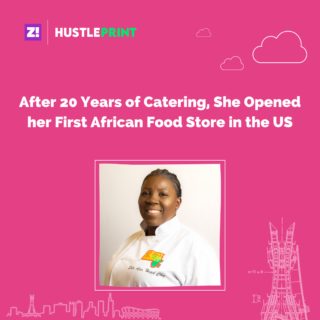Navigating life as a woman in the world today is interesting. From Nigeria to Timbuktu, it’ll amaze you how similar all our experiences are. Every Wednesday, women the world over will share their experiences on everything from sex to politics right here. This is Zikoko’s What She Said.
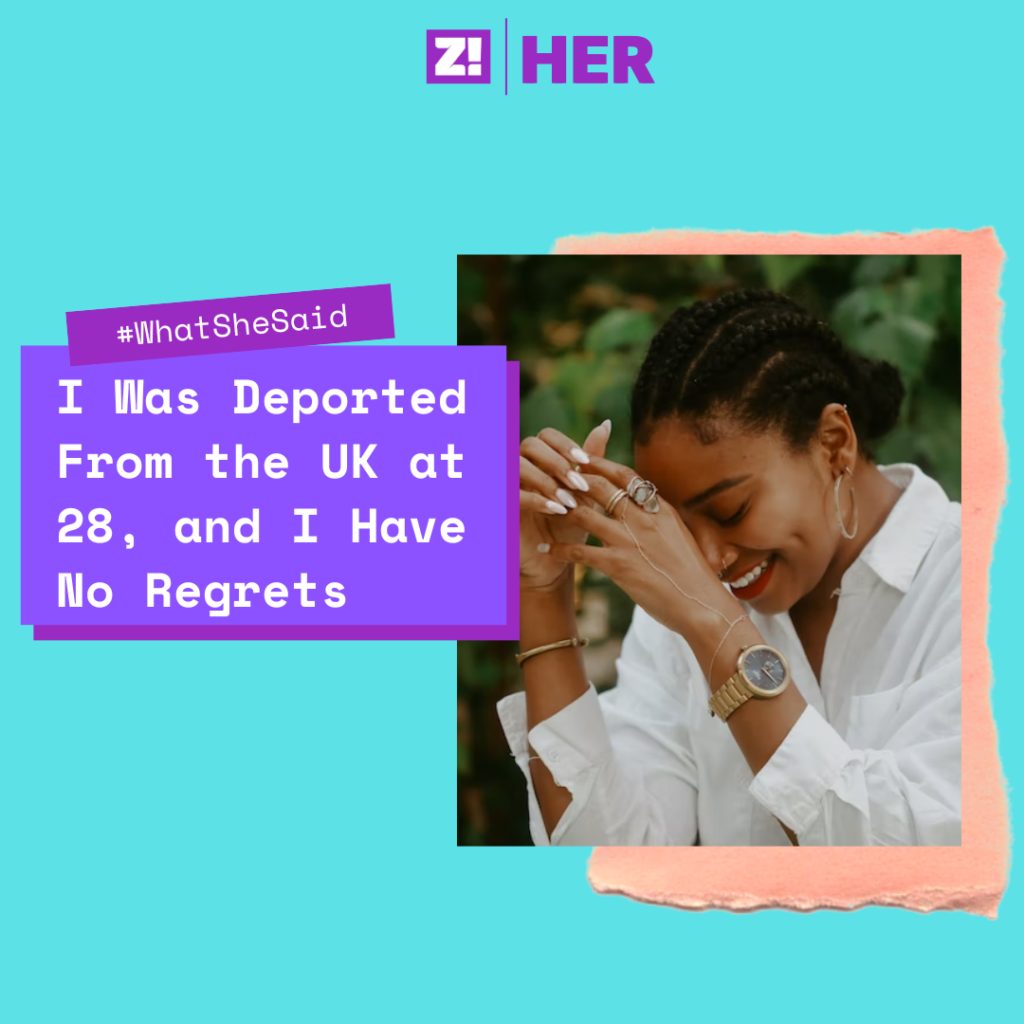
This week’s #ZikokoWhatSheSaid subject is a 45-year-old Nigerian woman. She talks about spending the last 22 years in the UK moving from one menial job to another, not wanting her daughter to see her retire as a shop worker and finally going back to university.
What’s something about life you’re enjoying?
Working towards going back to school next year. It hasn’t been easy though. I didn’t think I’d actually care to get another degree after my bachelor’s in education in 1999. It took three months for me to even find my university certificate to apply for the programme I’m currently considering.
So what prompted your decision to go back to school?
After 14 years of working in retail stores in the UK, I’d like to get a proper white-collar job, possibly in a government office as administrative staff.
Retail is a time-consuming and physically tasking job. As I get older, I don’t see myself being able to keep up with loading shelves and working late nights.
An office job would come with much higher health insurance and retirement fund than my current job, and I’d get to close at 6 p.m. and stay home with my husband and daughter during public holidays.
Now that my daughter is eight and a lot more independent, I can sit down to work on my applications without so many distractions.
Before your daughter, what made getting a new job difficult?
I got into the UK illegally in 2001. I couldn’t settle in as an immigrant until 2008 when I married her dad. So at first, retail jobs were a means to getting paid in cash rather than opening up a bank account. It’s not possible to get one without proper papers.
Omo. So how did you get into the UK?
Through my older sister. She and her husband decided to take a trip with their three-year-old daughter to Cardiff, in 2001 and took me along. I was 24. After two months of living there, I couldn’t imagine coming back to Nigeria. I lived in Lagos with no job or real plans for the future. So when it was time to return, I told my sister I wanted to stay back.
Of course, she advised against it, but I felt I could manage on my own.
And she was cool with that?
No. But she couldn’t physically drag me back.
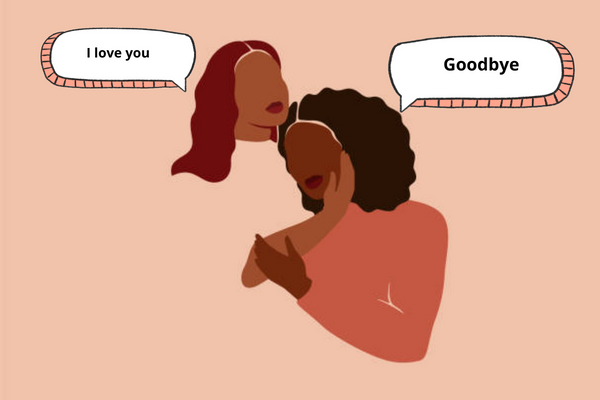
Did you have any plans?
I’d heard stories of a lot of Nigerians moving to the UK by refusing to leave after coming for a holiday. Of course, no one ever named names, but I knew there was some truth to the gossip. I felt like I could do the same.
I didn’t think beyond staying back with the family friend we’d stayed with during our two-month holiday.
So how did you scale through?
Well, I got a cleaning job that paid cash. They didn’t ask me questions about my work permit. And since my brother-in-law schooled in Cardiff for his master’s, he was able to get me fake working papers through some of his friends.
You weren’t caught. How?
I made sure I didn’t walk around unnecessarily. If I didn’t have any houses to clean, I was home. But I knew hiding didn’t change the reality that I could be caught at any time. All it took was one random ID check or a phone call to the police from a colleague who didn’t like me. I made it as far as I did because of God.
My sister was also a huge support system. Back then, renewing visas wasn’t as complicated as it is now. So whenever my sister or her husband had a friend going back to Nigeria, I’d give them my passport and they’d pay for it to get stamped. We did that like once a year.
Wow
Yeah. We tried to tick all the boxes as much as we could under the radar. Plus, Cardiff is a small town, so people rarely got into your business.
I can’t imagine what it felt like to constantly be afraid
I wasn’t thinking about that. I made the decision to stay and understood the consequences. There was no going back.
After almost two years of living with my friend, I had to find my own place. She’d gotten pregnant and wanted her boyfriend to move in. I never liked the guy. Imagine coming home to an entitled white man who didn’t seem to have any plans for his life. There was no way I’d be comfortable putting up with him in those tiny UK flats.
Were you prepared to move out?
Yes and no. I honestly didn’t have a plan on how to get a permanent residence visa in the UK, but I was saving up to explore my options with school. The sudden transition from having a home to potentially being homeless was going to slow down the process.
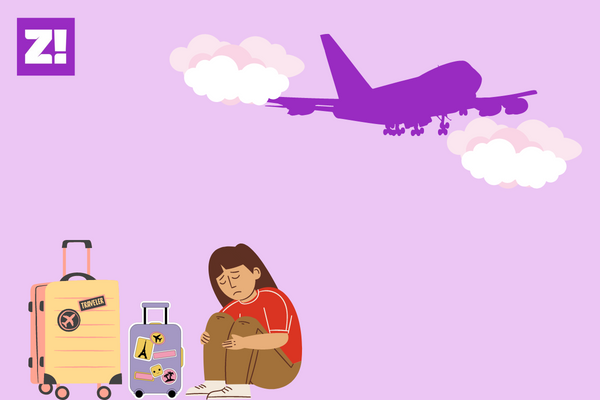
So what happened next?
I got another job. This time, one of my colleagues from the cleaning company linked me with a man who needed someone to manage a home for homeless old people around the neighbourhood. He needed someone to make sure things didn’t get out of hand whenever he was out of town.
The pay wasn’t great. But at least, I got a room to myself and didn’t have to pay for rent anymore.
He didn’t do a background check on you?
He was an old man. I don’t think he cared. I just had to reassure him I had two years of experience in cleaning. The work extended to much more than cleaning though — I had to manage the daily activities of the guests — but what other options did I have?
What gave you peace of mind, considering your illegal status?
Mostly church. It was my happy place; my faith kept me together. I also had someone I started dating in 2004. We met in church when I first moved to the UK and things gradually grew between us. He was a Jamaican man born in Britain.
He knew about my situation and supported me the best he could, but there were days I just wanted to go back home.
When did things start coming together for you?
2008. But before then, things completely fell apart.
What happened?
I decided to get a new job in 2005. I’d spent a year working at the house, but I didn’t feel fulfilled spending my entire day stuck inside. I started to look out for store jobs that paid in cash. I didn’t want to continue with a cleaning job.
How’d that go?
The job I got was at a food store owned by an older Nigerian woman. She was a citizen, and quite friendly, so I opened up about my issues with documentation to her. It took me four months to get to that point of trust, but it was the worst mistake I made in the UK.
A few weeks after our conversation, immigration officers showed up at the store. Luckily, I was walking down to the store with my boyfriend that morning, so he followed me to their office.
Do you think your boss snitched?
Maybe. I never got a chance to confront her. Anyone working at the store could’ve overheard our conversation, or even a customer, who knows? But they came straight toward me, and I knew the last four years were going down the drain.
Omo
They took me to their office and things moved fast from there.
Since my boyfriend was a British citizen, he was able to intervene.
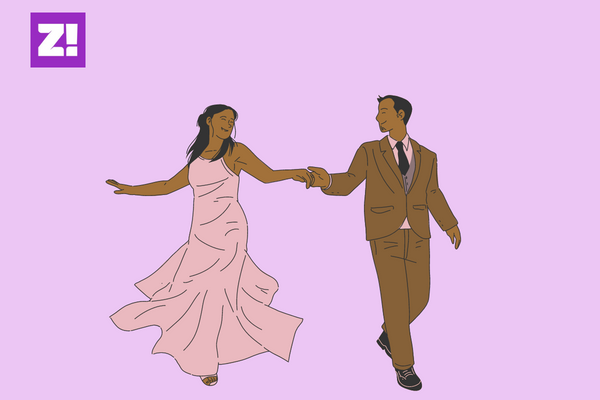
How?
The paid visa I’d gotten through my sister had expired a few weeks before I was caught. So my boyfriend told the officers he was the reason I hadn’t gone back to my country yet. He explained he wanted to travel back to Nigeria with me to get married, hence the delay. He also got a good immigration lawyer to plead for my passport to not be stamped since we’d be getting married soon.
Did you still have to leave the country?
Yes. I had a week to pack up and leave. But a year later, my boyfriend came to Nigeria for our wedding. We got married and moved to the UK immediately after our marriage certificates were ready.
Before then, I won’t deny I’d lost hope. I wasn’t happy to be back in Lagos sharing a room with my niece and not having anything tangible to do every day. But I kept in touch with my partner through phone calls, and sometimes, Facebook.
A part of me felt ashamed.
Why shame?
At 28, and after four years of living abroad, I didn’t have anything good to show for it. Compared to my older sister, my life was pretty unsuccessful. She was 31, married with two kids at that point, and to my parents, those were achievements. Praying was the only thing that kept me together during that one year in Lagos.
Thinking about it now, would you have done things differently?
No. I’m happy I took the risk in my early 20s. It wasn’t the wisest decision, but I’m here today. The struggle taught me I can survive anything. That’s why I’m not bothered about going back to school at 45.
The only thing I’d change is coming back to the UK in 2008 after we got married, and sticking to the same menial jobs because it was the only thing I knew how to do. I don’t want to retire as a store attendant.
I hope you’re able to change careers
Thank you. I also want my daughter to be proud of me. I see how excited she gets when my husband talks about his job as a psychiatrist. I want her to look at me with the same pride when I talk about my day too.
If you’d like to be my next subject on #WhatSheSaid, click here to tell me why


